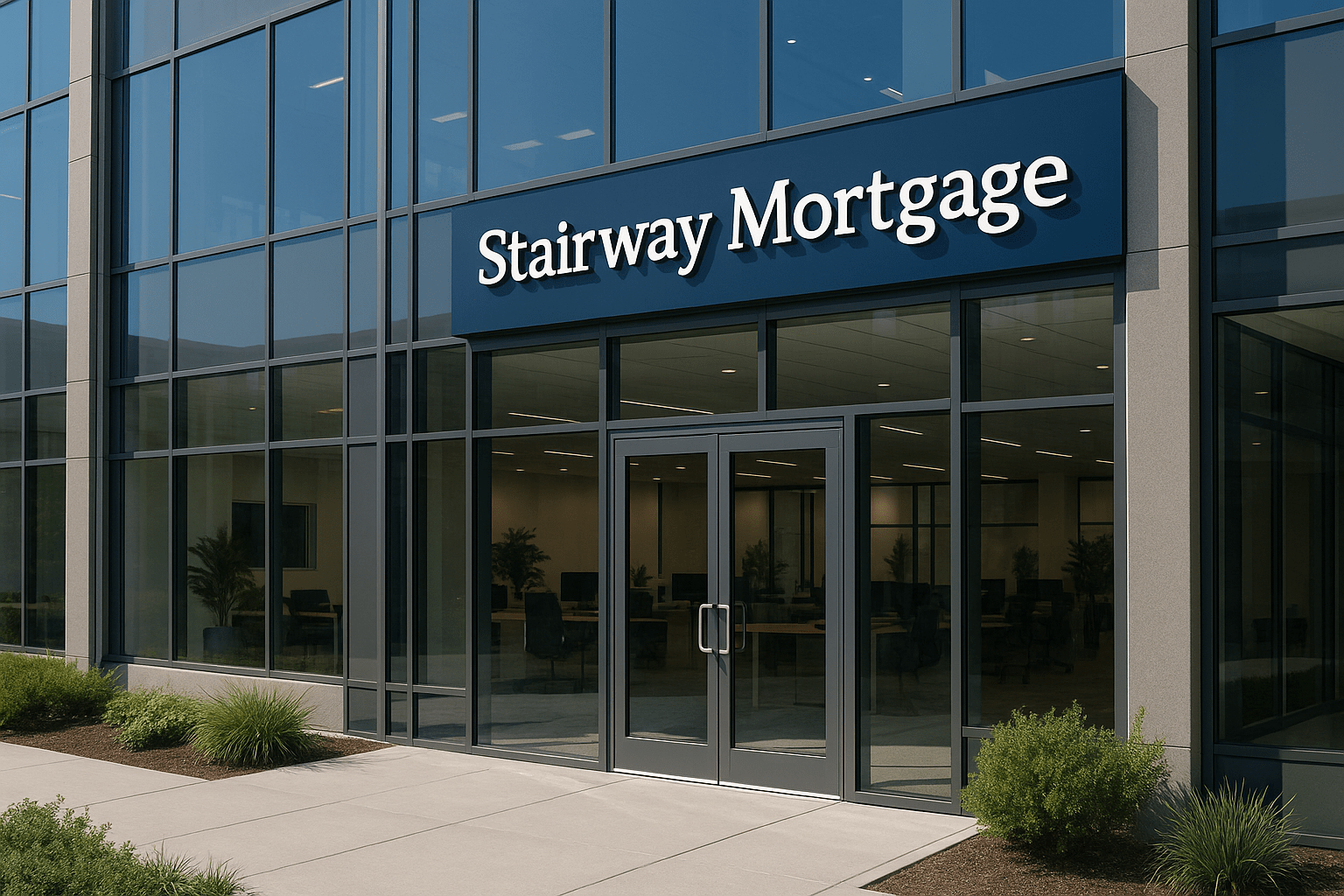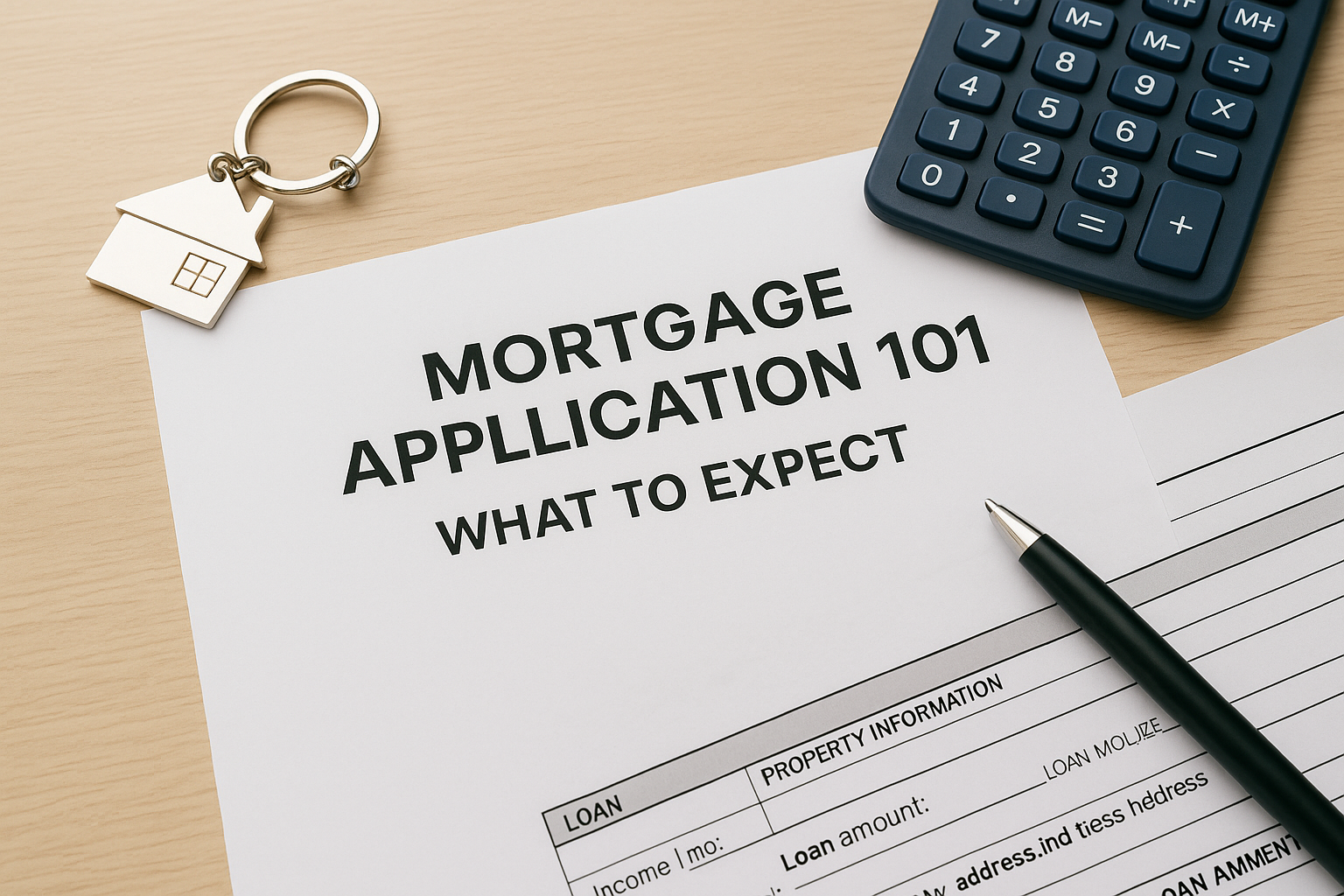What Is My Home Worth: Free Home Valuation and Property Value Guide
What Is My Home Worth: Free Home Valuation and Property Value Guide

Free Home Value Estimator: Understanding Your Property Worth
“What’s my home worth right now?” This question matters far more than most homeowners realize. Your home’s current value isn’t just a number for cocktail party conversations—it’s the foundation for every major financial decision you’ll make as a homeowner. Whether you’re considering refinancing, planning home improvements, building your net worth strategy, or simply tracking your largest asset, knowing your accurate property value empowers smarter stewardship.
In this guide, you’ll discover:
- Multiple methods to determine your true home value (using real estate market data standards)
- The difference between automated valuations and professional appraisals
- How to track equity growth strategically over time
- When home value knowledge triggers important financial decisions (per IRS equity utilization rules)
- Why annual value audits belong in your wealth-building routine
Ready to understand your home’s true worth? Schedule a call to discuss equity strategies and explore what your growing value can accomplish.
What Does “Home Worth” Actually Mean?
Is value just what someone will pay? Not quite. Your home’s “worth” exists in multiple contexts, each serving different purposes in your financial life.
Market Value vs. Assessed Value vs. Appraised Value
Why do three different numbers exist?
Market Value represents what buyers will likely pay in current conditions—the price your home would command if listed today. This number fluctuates based on:
- Recent comparable sales in your neighborhood
- Current buyer demand and available inventory
- Prevailing interest rates affecting affordability
- Seasonal market patterns
- Local economic conditions
Assessed Value is what your local tax authority uses to calculate property taxes. This number:
- Often lags behind actual market value
- Updates periodically (annually or less frequently)
- May be lower than market value (good for taxes, misleading for equity calculations)
- Varies by jurisdiction assessment methods
Appraised Value is a professional valuator’s opinion ordered for specific transactions:
- Required for mortgage origination or refinancing
- Based on detailed property inspection and comparable analysis
- More conservative than market estimates (lenders need downside protection)
- Provides highest confidence for financial decisions
Use the home equity loan calculator to estimate available equity based on current market value estimates.

How to Value Your House: Multiple Methods Explained
What’s the most accurate way to determine worth? Each method serves different purposes—understanding all options helps you choose the right tool for your needs.
Online Home Value Estimators
Can algorithms really know your home’s worth? Automated valuation models (AVMs) like those from major real estate platforms use:
- Public records data (recent sales, tax assessments, property characteristics)
- Statistical modeling comparing your home to similar properties
- Market trend algorithms adjusting for current conditions
- Machine learning refining estimates over time
Pros of online estimators:
- Instant results without cost
- Convenient tracking of value changes over time
- Useful starting point for informal valuations
- Good for general neighborhood trend understanding
Cons of online estimators:
- Cannot account for interior condition, upgrades, or unique features
- May use outdated or incomplete data
- Accuracy varies significantly by location (better in uniform suburban neighborhoods, worse in unique properties)
- Typically show wide value ranges acknowledging uncertainty
When to use online estimators: Annual equity check-ins, curiosity about neighborhood trends, preliminary planning before formal valuation
Comparative Market Analysis (CMA)
How do real estate professionals value homes? Licensed agents provide CMAs analyzing:
- Recently sold comparable properties (similar size, features, location, condition)
- Active listings currently competing for buyers
- Pending sales showing current buyer appetite
- Expired listings revealing what didn’t sell and why
What makes a good comparable? The most relevant properties share:
- Similar square footage
- Same bedroom/bathroom count
- Comparable condition and update level
- Same school district or immediate neighborhood
- Sales within past several months
Pros of CMAs:
- Free service from agents (hoping to earn future business)
- Local expertise understanding neighborhood nuances
- Can explain value drivers and market positioning
- Factors in condition differences online tools miss
Cons of CMAs:
- Agent may inflate value hoping to win listing (if you’re considering selling)
- Still an educated estimate, not definitive valuation
- Depends on agent’s skill and local market knowledge
When to request a CMA: Considering refinancing or selling within the next year, want professional opinion without appraisal cost, planning major improvements and need ROI guidance
Professional Appraisal
When do you need the official number? Formal appraisals become necessary for:
- Mortgage origination or refinancing (lender requirement)
- Estate planning or divorce settlements (legal documentation)
- Removing private mortgage insurance (PMI)
- Disputes with tax assessors
- Any situation requiring defensible valuation
The appraisal process includes:
- Exterior inspection – Lot size, condition, curb appeal, neighborhood quality
- Interior walkthrough – Square footage verification, room count, condition assessment, improvements and upgrades inventory
- Comparable analysis – Recent arms-length sales of similar properties
- Adjustments – Adding/subtracting value for differences between your home and comparables
- Final opinion – Supported value conclusion with detailed report
Cost and timeline: Expect to pay several hundred dollars with results in a week or two depending on complexity and appraiser availability.
See how home value knowledge helped in this conventional loan refinance case study where accurate valuation unlocked better loan terms.
Why Knowing Your Home Value Matters for Wealth Building
How does value knowledge change your financial life? Understanding your current worth unlocks strategic opportunities most homeowners miss.
Equity Calculation and Net Worth Tracking
What’s equity again? Simply: current home value minus remaining mortgage balance equals your equity—the portion you truly “own.”
Example scenario:
- Current home value: Substantial amount
- Remaining mortgage: Moderate balance
- Your equity: Significant wealth stored in your property
This equity represents:
- Accessible capital for strategic purposes
- Net worth component often exceeding retirement accounts
- Financial cushion for emergencies
- Foundation for future investment opportunities
Use the cash-out refinance calculator to explore how much equity you could access.
Refinancing Decision Triggers
When does value knowledge spark action? Several refinancing scenarios depend on current worth:
Removing PMI: Once you reach sufficient equity (typically around the 20-22% threshold), you can eliminate private mortgage insurance, reducing your monthly payment. Requires new appraisal confirming value.
Cash-out refinancing: Access accumulated equity for debt consolidation, home improvements, investment opportunities, or other strategic purposes. New loan amount limited by current value.
Rate-and-term refinancing: Better value means better loan-to-value ratio, potentially qualifying you for improved rates even without equity withdrawal.
If you have a current FHA loan, explore FHA streamline refinance options that may not require new appraisals.
Home Improvement ROI Planning
Should you renovate? Knowing current value helps calculate:
- Whether improvements make financial sense
- How much value increase justifies renovation costs
- When you’re over-improving for your neighborhood
- Which projects deliver best returns
Strategic improvement decision: Current value places your home in the middle of neighborhood range. Extensive upgrades might increase value but make you the most expensive house on the block—typically a poor investment. Better to make targeted improvements maintaining competitive positioning.

House Price Estimate: Understanding the Value Range
Why don’t all sources agree? Seeing different estimates from multiple platforms is normal—understanding why helps you interpret results correctly.
Factors Creating Valuation Variance
What causes the spread?
Data currency: Some platforms update more frequently than others. One might include last week’s sale while another lags by several months.
Comparable selection: Algorithms choose different “similar” properties. Slight variations in what qualifies as comparable create value differences.
Adjustment methodologies: How much is an extra bathroom worth? A finished basement? Updated kitchen? Different models calculate these adjustments differently.
Market condition interpretation: Rising markets, stable markets, and declining markets require different analytical approaches—models may disagree on current trajectory.
Unique property challenges: Homes with unusual features, large lots, custom designs, or limited comparable sales generate wider estimate ranges.
Interpreting the Range
How do you use conflicting estimates?
Look for clustering: If four sources say moderate range and one outlier says much higher, trust the cluster.
Consider the high-low spread: Narrow ranges (within several percentage points) suggest confident valuation. Wide ranges (15%+ variance) indicate uncertainty requiring professional input.
Factor in your knowledge: You know your home’s condition, recent improvements, and neighborhood dynamics better than algorithms. Adjust estimates accordingly.
Seek professional opinion when stakes are high: Informal tracking tolerates estimate variance. Major financial decisions require appraisal certainty.
Trulia Home Value, Zillow Estimate, and Other Online Tools
Which online estimator should you trust? Each major platform uses proprietary algorithms with different strengths and limitations.
Comparing Popular Estimators
What distinguishes each tool?
Most major real estate platforms provide instant value estimates using similar but not identical methodologies. Key differences include:
Data sources and freshness: Platforms with their own transaction data or MLS partnerships often provide more current estimates than those relying solely on public records.
Algorithm sophistication: More advanced statistical models account for subtle value factors, while simpler algorithms may miss neighborhood micro-trends.
Confidence scores: Better platforms disclose accuracy ranges or confidence levels alongside estimates, helping users interpret reliability.
Update frequency: Some recalculate values daily as new sales close, while others update weekly or monthly.
Using Online Estimators Effectively
How should you leverage free tools?
Track trends, not absolute numbers: Watch how your home’s estimated value changes over time rather than fixating on the specific dollar amount.
Consult multiple sources: Check several platforms and look for consensus. Agreement across tools suggests reliability.
Understand limitations: Online estimates work best for:
- Typical homes in subdivisions with abundant comparables
- Properties in actively traded markets
- Homes without unique features or extensive custom work
- General trend tracking versus transaction-specific valuations
Know when they fail: Online estimates struggle with:
- Unique or custom properties
- Rural locations with sparse comparable sales
- Homes with significant recent improvements not yet reflected in public records
- Markets with rapid value shifts (algorithms lag current conditions)
For a complete view of your home’s potential, explore HELOC options that leverage your equity for strategic purposes.

Property Value Search: Finding Comparable Sales Data
How do professionals research values? Understanding comparable sales—the foundation of all valuation methods—helps you evaluate your home’s worth like an expert.
Where to Find Comparable Sales
What sources reveal recent neighborhood transactions?
Public records: Many counties provide free online access to recent sales including:
- Sale prices and dates
- Property characteristics (square footage, bedrooms, bathrooms)
- Tax assessment history
- Ownership transfers
Real estate platforms: Major listing sites typically show recently sold properties with:
- Interior photos from when homes were listed
- Final sale prices
- Days on market
- Listing descriptions revealing condition and features
MLS access through agents: The Multiple Listing Service provides most complete data to licensed real estate professionals:
- Internal condition notes
- Complete transaction history
- More accurate square footage
- Detailed comparable analysis tools
Evaluating Comparable Relevance
What makes a sale truly “comparable”?
Geographic proximity: Closest comparables matter most—properties within your immediate subdivision or several blocks carry more weight than homes across town.
Temporal relevance: Recent sales (past three to six months) reflect current market conditions. Year-old transactions may not account for market shifts.
Physical similarity: Square footage within range (typically within 10-15%), same bedroom/bathroom count, similar lot size, comparable condition and update level.
Transaction type: Arms-length sales between unrelated parties. Exclude family transfers, foreclosures, estate sales, or distressed transactions unless those conditions match yours.
Adjustment thinking: No two homes are identical. Ask:
- Does the comparable have features yours lacks (or vice versa)?
- Is it in better or worse condition?
- Does it offer superior or inferior location within the neighborhood?
- How should these differences affect value comparison?
Most Accurate Home Value Estimator: When You Need Precision
Can you really know your home’s exact worth? Value precision depends on your purpose—different scenarios require different accuracy levels.
Accuracy Hierarchy by Purpose
Match your valuation method to your need:
Casual curiosity or annual tracking: Online estimators provide sufficient accuracy. Focus on trend direction rather than specific numbers.
Preliminary planning (thinking about refinancing or improvements): Agent CMA offers good accuracy without cost. Helps determine whether formal appraisal makes sense.
Mortgage refinancing or HELOC application: Professional appraisal required. Lenders won’t proceed on estimates alone. For HELOC applications, explore HELOC programs that access your verified equity.
Divorce, estate planning, tax disputes: Professional appraisal essential for legal defensibility. Court proceedings and official matters demand qualified appraiser opinions.
Investment property evaluation: If you’re considering converting your home to a rental, run both current value and rental income analysis using the rental property calculator.
The Annual Equity Audit
Why check value regularly? Successful wealth-building homeowners track their property worth systematically, not sporadically.
The quarterly or annual value review includes:
- Quick online estimate check across multiple platforms
- Comparison to last review to identify trend direction
- Neighborhood sales awareness noting recent transactions
- Equity calculation update (current value minus remaining loan balance)
- Strategic decision evaluation asking whether current equity creates opportunities
This discipline transforms your home from passive shelter into active wealth-building asset.
Learn from this conventional loan cash-out refinance case study showing how regular value tracking led to strategic equity utilization.

How Stairway Mortgage Helps You Leverage Home Value Knowledge
Understanding your home’s worth is just the beginning—the real question becomes “what can this knowledge do for my family’s financial future?”
Equity Strategy Consultation
How do you turn value into action? We help homeowners:
- Calculate true usable equity based on current value and loan programs
- Evaluate refinancing opportunities unlocked by value growth
- Compare cash-out refinancing versus HELOC options for accessing equity
- Plan strategic improvements that build versus waste equity
- Time major financial moves around value cycles
Value-Triggered Refinancing
When does your home’s worth create refinancing opportunities?
PMI removal: Once equity reaches sufficient levels, refinancing or requesting PMI cancellation saves substantial monthly costs. We order appraisals and structure loans maximizing this benefit.
Rate-and-term improvement: Better loan-to-value ratios from increased home worth often unlock superior interest rates—even when you don’t need cash out.
Cash-out strategic access: Growing equity creates options for:
- Debt consolidation at lower rates than credit cards
- Home improvements that further increase value
- Investment property down payments
- Business capital or education funding
- Emergency reserves providing financial security
Explore conventional loan refinancing options that leverage your increased home value.
Wealth-Building Planning
How does home value fit your bigger financial picture? Your home’s equity often represents your largest asset—we help integrate this into comprehensive wealth strategy:
- Balancing equity utilization versus preservation
- Timing decisions around life changes (retirement, college, career transitions)
- Coordinating home value growth with investment portfolio management
- Planning legacy and estate considerations
Ready to transform home value knowledge into strategic action? Get pre-approved to explore your refinancing options or schedule a consultation to discuss equity strategy.

Ready to Understand and Leverage Your Home’s Worth?
Your home’s value isn’t just a number—it’s a wealth-building tool that deserves strategic attention. Whether you discover you have:
- Substantial equity you didn’t realize existed
- Enough value to eliminate PMI and reduce payments
- Strategic refinancing opportunities created by appreciation
- Home improvement justification based on value growth
- Simply peace of mind knowing your largest asset’s worth
Your next steps:
- Check multiple online estimators – Get baseline understanding from several sources
- Calculate your equity – Use our home equity calculator to see available wealth
- Request professional CMA – Work with local agent for refined estimate
- Explore refinancing options – Get pre-qualified to see what your value unlocks
- Schedule equity strategy session – Talk with an advisor about maximizing your wealth
You’ve been building equity with every payment. Time to understand what you’ve accumulated and make it work toward your family’s financial goals.
Frequently Asked Questions
How often should I check my home’s value?
For most homeowners, checking home value quarterly or annually provides sufficient awareness without obsessive monitoring. Set a calendar reminder for the same date each year—perhaps your home’s purchase anniversary or your birthday—to review current estimates across multiple platforms, calculate updated equity, and assess whether value changes create refinancing opportunities. More frequent checking makes sense if you’re actively planning to refinance, considering selling within the next year, or live in a rapidly appreciating market. The key is consistent tracking that reveals trends over time rather than fixating on day-to-day fluctuations.
Can I trust Zillow estimates for refinancing decisions?
Online estimates from any platform—including Zillow, Redfin, or others—provide helpful starting points but should never be your sole basis for refinancing decisions. These automated valuations work best for general trend tracking and preliminary planning. For actual refinancing, lenders require professional appraisals because online estimates often miss crucial value factors like interior condition, recent improvements, neighborhood micro-trends, and unique property features. Use online estimates to gauge whether refinancing might make sense, then get professional appraisal for the actual loan application. Check our conventional loan refinance options to understand the appraisal process.
What if my home’s assessed value is lower than its market value?
This situation is actually quite common and generally works in your favor. Assessed values (used for property taxes) often lag behind actual market values because assessors update their numbers periodically rather than continuously. While lower assessed value means lower property taxes (good), it’s not useful for calculating available equity or planning refinancing. For financial decisions, always use estimated market value from CMAs or online tools rather than tax assessment. However, if your assessed value seems dramatically higher than market value, you may have grounds to appeal your tax assessment and reduce your property tax burden.
How much equity do I need to refinance?
Most refinancing programs work best once you have meaningful equity in your home (typically around the 20% threshold or more). With substantial equity, you can: eliminate PMI if you currently pay it, qualify for better interest rates due to lower loan-to-value ratio, access cash-out refinancing if desired, and have more loan program options to choose from. Some programs allow refinancing with less equity—for example, FHA streamline refinance for existing FHA borrowers or high loan-to-value conventional refinancing in specific situations—but having more equity generally provides better terms and more flexibility.
Does home value matter if I’m not planning to sell or refinance?
Absolutely—home value awareness matters for every homeowner regardless of immediate plans. Knowing your worth helps you: calculate your true net worth accurately (home equity is often your largest asset), make informed decisions about home improvements (which projects add more value than they cost), understand your financial options in emergencies (equity provides borrowing capacity if needed), plan long-term wealth strategy (equity can fund retirement, education, investments), and track whether you’re building wealth or just paying housing expenses. Think of regular value monitoring like checking your investment account—you wouldn’t ignore your retirement portfolio balance, so don’t ignore your home equity growth either.
Also Helpful for Homeowners
- Unlocking Home Equity – Using HELOC to access your accumulated wealth
- Refinancing for Better Terms – Leveraging increased value for improved loans
- Investment Property Conversion – Turning your home into rental income
What’s Next in Your Journey?
- Accessing Your Equity – Calculate available funds from your home’s value
- Strategic Refinancing – Cash-out options for leveraging appreciation
- Home Improvement Planning – FHA 203k loans for value-building renovations
Explore Your Complete Options
- All Loan Programs – Find financing that leverages your home value
- Mortgage Calculators – Calculate equity and refinancing scenarios
- Success Stories – See how others leveraged home value growth
- Get Pre-Approved – Turn home value knowledge into action
- Schedule a Call – Discuss your home’s worth and equity strategy
Need a Pre-Approval Letter—Fast?
Buying a home soon? Complete our short form and we’ll connect you with the best loan options for your target property and financial situation—fast.
- Only 2 minutes to complete
- Quick turnaround on pre-approval
- No credit score impact
Got a Few Questions First?
Let’s talk it through. Book a call and one of our friendly advisors will be in touch to guide you personally.
Schedule a CallNot Sure About Your Next Step?
Skip the guesswork. Take our quick Discovery Quiz to uncover your top financial priorities, so we can guide you toward the wealth-building strategies that fit your life.
- Takes just 5 minutes
- Tailored results based on your answers
- No credit check required
Related Posts
Subscribe to our newsletter
Get new posts and insights in your inbox.







